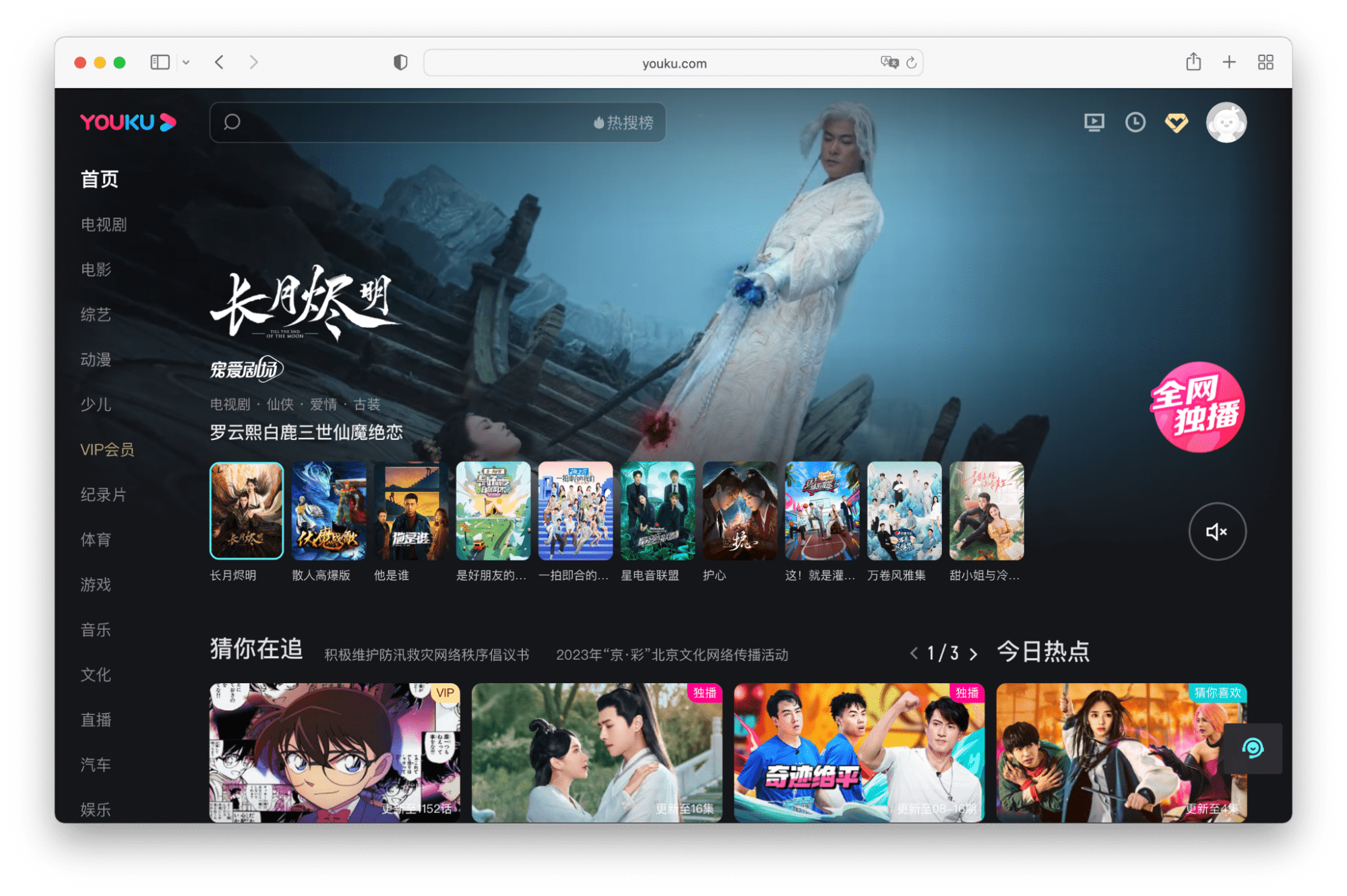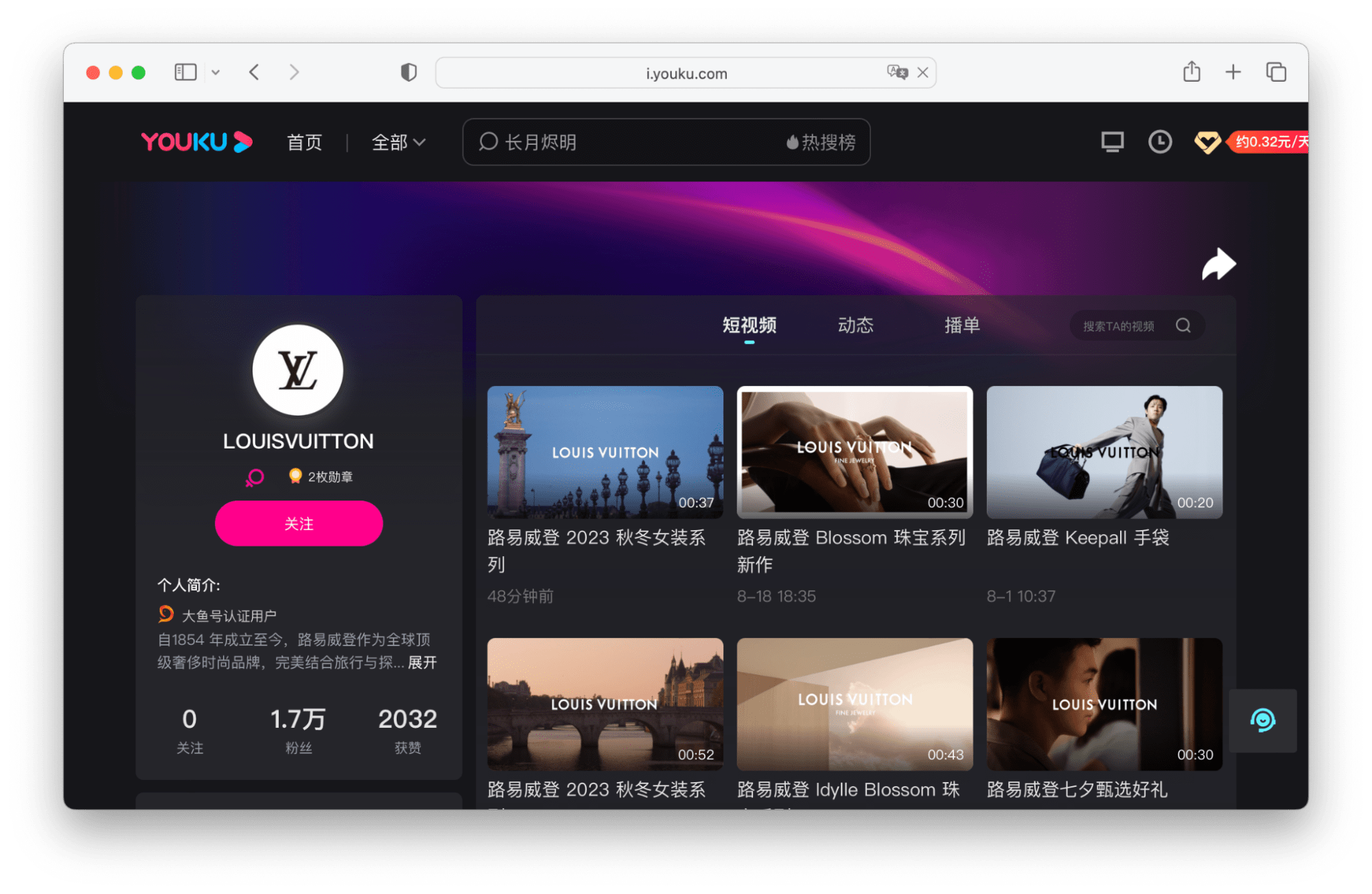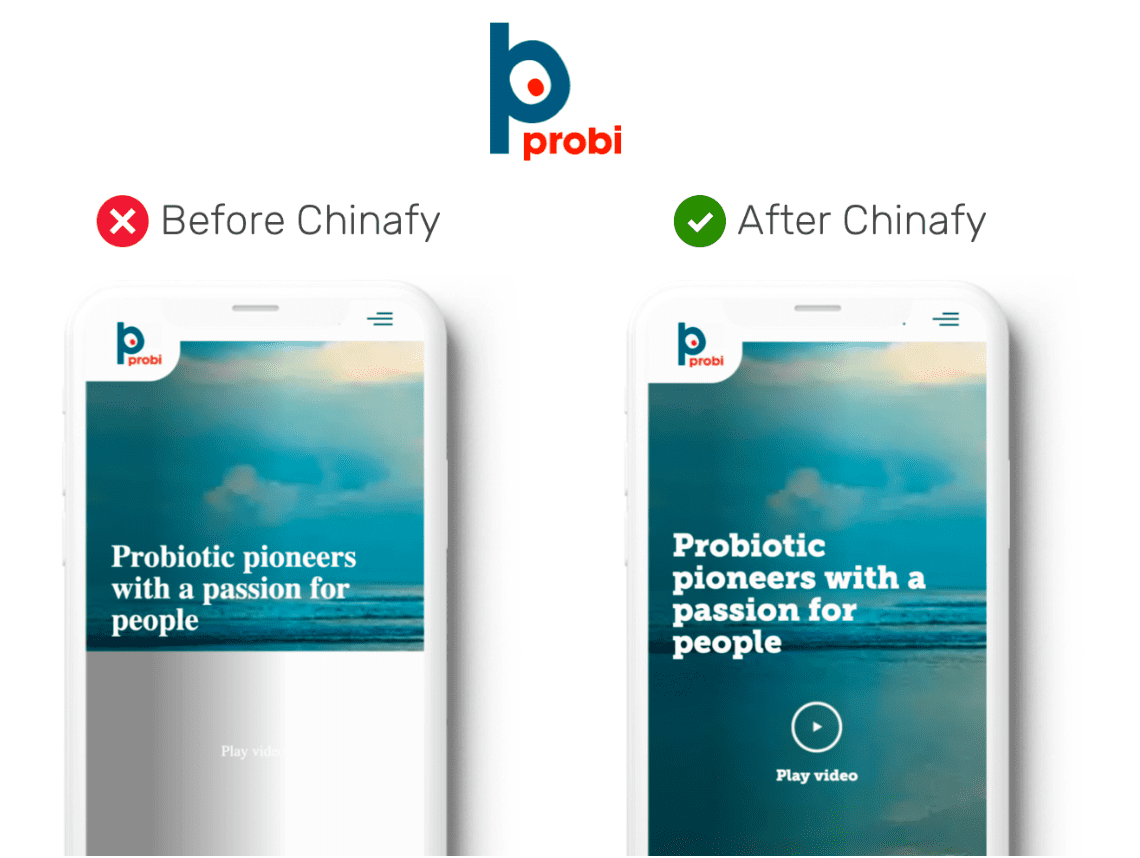1 - Expected post-Chinafy results
Youku vs. YouTube: China Marketing Guide
What is Youku?
Youku is China’s third largest video streaming platform after Tencent Video and IQiyi, and is often referred to as the “YouTube of China”.

Founded in 2005 and headquartered in Beijing under the Alibaba Group, Youku enjoys over 500 million users (2023), 247 million of whom are monthly active users (MAU).
Youku is part of Alibaba’s group portfolio of companies and is also an official partner to over 1,500 licensed networks with established and dedicated audiences.
Who uses Youku?
While Youku users vary across audiences and demographics, a Youku user is typically a high-quality content consumer seeking professionally produced original shows and videos.
A number of medium-length shows (TV shows in episode format) that have charted in the top 10 shows in China at the time of their release can be found on Youku, several of which are under exclusive licenses to the platform.

Shows such as “Master Of My Love” are seeing success in the China Market, shown on Youku
Popular Youku Content Producers
With millions of creators, Youku boasts a mature and diverse content ecosystem. Popular creators and channels cover varying topics and interest areas, including the “De Yun Comedians“ (德云社) and Papi Jiang, a popular vlogger with a large online viewership.

Youku is often most closely likened to the China counterpart of YouTube
Similarities between YouTube and Youku include
Video-sharing functionality:
YouTube and Youku both are online video-sharing platforms where users can upload, view, share, and comment on videos.
User-generated content:
Both platforms grew from their focus on user-generated content, allowing individuals, brands, and organisations to create and share videos with a wide audience.
Social features:
YouTube and Youku provide social features such as following channels or creators, liking/disliking videos, and commenting, which enable interaction and engagement within their respective communities.
Monetization options:
Both platforms offer opportunities for content creators to monetize their channels or videos through advertising, brand partnerships, sponsorships, and other revenue-sharing programs.
Some notable differences between YouTube and Youku include
Geography and language:
YouTube is a global platform available in multiple languages, catering to a worldwide audience. On the other hand, Youku primarily serves the Chinese market, with a focus on Mandarin language content and being subject to Chinese regulations.
Ownership and regulation:
YouTube is owned by Google, and its operations are subject to regulations and policies specific to the countries it operates in. Youku, on the other hand, is one of China's largest video-sharing platforms owned by Alibaba Group, adhering to Chinese regulations and censorship guidelines.
Market dominance:
While YouTube has a significant global reach and is immensely popular in many countries, including the United States, Youku has gained prominence in the Chinese market, competing with other local platforms like Tencent Video and iQiyi.
Content selection and licensing:
YouTube offers a wide range of content across various categories, including music videos, vlogs, educational content, and more. Youku, being focused on the Chinese market, has a content library that caters to local preferences, including Chinese TV dramas, variety shows, movies, and user-generated videos that fall within Chinese regulatory guidelines.
Integrated e-commerce:
Youku allows for channels to integrate e-commerce on its platform, with key features such as a dedicated right-corner overlay in videos for brands/channels to link directly to a selected T-mall or Taobao store, displaying ecommerce listings on each video page. Each channel also allows for display of items on their channel page, directly linking to their T-mall and Taobao stores. Put together, these features create a direct bridge between content consumption and e-commerce shopping.
Weibo Integration:
Youku also has a powerful tool in its ability to have its videos viewed directly on Weibo, extending your content’s reach to capture additional viewers and audiences through one of China's most popular microblogging platforms.
Access and availability:
Due to geographic restrictions and censorship policies, YouTube is officially blocked in China. However, Youku is readily available to Chinese users within mainland China. Several countries have implemented varying levels of restrictions from accessing Youku content, whilst Youku itself employs methods to limit its content’s accessibility outside of China for licensing reasons.
One noteworthy development is that Youku has slowly started shifting toward web-based rebroadcasting of TV shows, in functionality more similar to the streaming platform Hulu.
How to use Youku for your China Marketing Strategy
i) Work with creators on Youku
Working Youku into your China marketing strategy will have to include collaborating with their creator community.
With established content creators and audiences, establishing a presence on Youku allows you to target and cater to the most relevant audiences available through Youku’s established creator and viewer bases.
Whilst a majority of creators in China may be more difficult to reach due to language barriers, their Youku page is often not the only platform on which they can be found. Creators are likely to have a social media presence across other Chinese platforms as well.
Non-Chinese Producers are also choosing to expand their YouTube presence into China through Youku, with deals for several shows by networks and studios including Disney, Paramount, and the BBC signed to cater to its user base. Shows that have seen popularity with multiple or even full seasons licensed for viewing include Sherlock, Dr. Who, Downton Abbey, and more.
ii) Capitalise more on medium to long-form storytelling
Brands have been capitalising on Youku's platform, leveraging the ability to create brand channels and powerful advertising features that include banner ads in multiple locations across each page as well as in-video ads.

Brands including Dior, Gucci, and Omega have brand presences on Youku, with Louis Vuitton leading the way with paid ads as far back as 2009.
A report by Chozan, a China Digital marketing consultancy specialising in social media strategy, shows that long-form content (over 10 minutes!) is the second highest preferred content format by Gen-Z respondents, coming before live-streaming categories and second only to short-form content. 1
With a platform like Youku, companies can create longer storylines, share existing media resources, and diversify their content offerings while capitalising on online channels - the now primary shopping channel across all age demographics in China. 2
Something to keep in mind however is that unlike Youtube, which thrives on targeted advertising, Youku's options in this domain are relatively limited to date.
It does appear that the platform does not have as advanced a capability to effectively target individual users based on their preferences or browsing history.
Consequently, Youku can be thought of more so as broad-based “blanket” advertising campaigns that aim to reach the widest possible audience similar to newspapers or television.
Combining Youku with a cohesive marketing strategy for China
Using Youku in your China marketing plan should be part of a larger, coordinated online presence that covers several key tools and platforms as well as an efficient and accessible website.
With a platform like Youku, companies can do a variety of activities including paid ads, influencer promotions, hosting and display of company media, direct e-commerce sales, and more.
A presence on Youku can also be designed as a funnel to drive traffic back to your website, where visitors can engage with your company.
However, navigating the unique challenges of making your website work in China for a cohesive marketing strategy is a challenge.
For starters, 93% of websites are not optimised for access in China, limiting your accessibility and visibility even with a presence on Youku.
Learn more about the difficulties in having an accessible website in China here and how Chinafy tackles these problems.
Get in Touch with Chinafy today to learn more about how we help round out your China marketing funnel by making your website work fully in China.

1 Gen Z 2021 Report, Chozan agency, https://alarice.com.hk/wp-content/uploads/2021/09/Alarice-ChoZan_Gen-Z-2021-Report.pdf
2 Statista, Shopping channel preferred by daily or weekly consumers in China 2021, Yihan Ma



1 - Expected post-Chinafy results






























